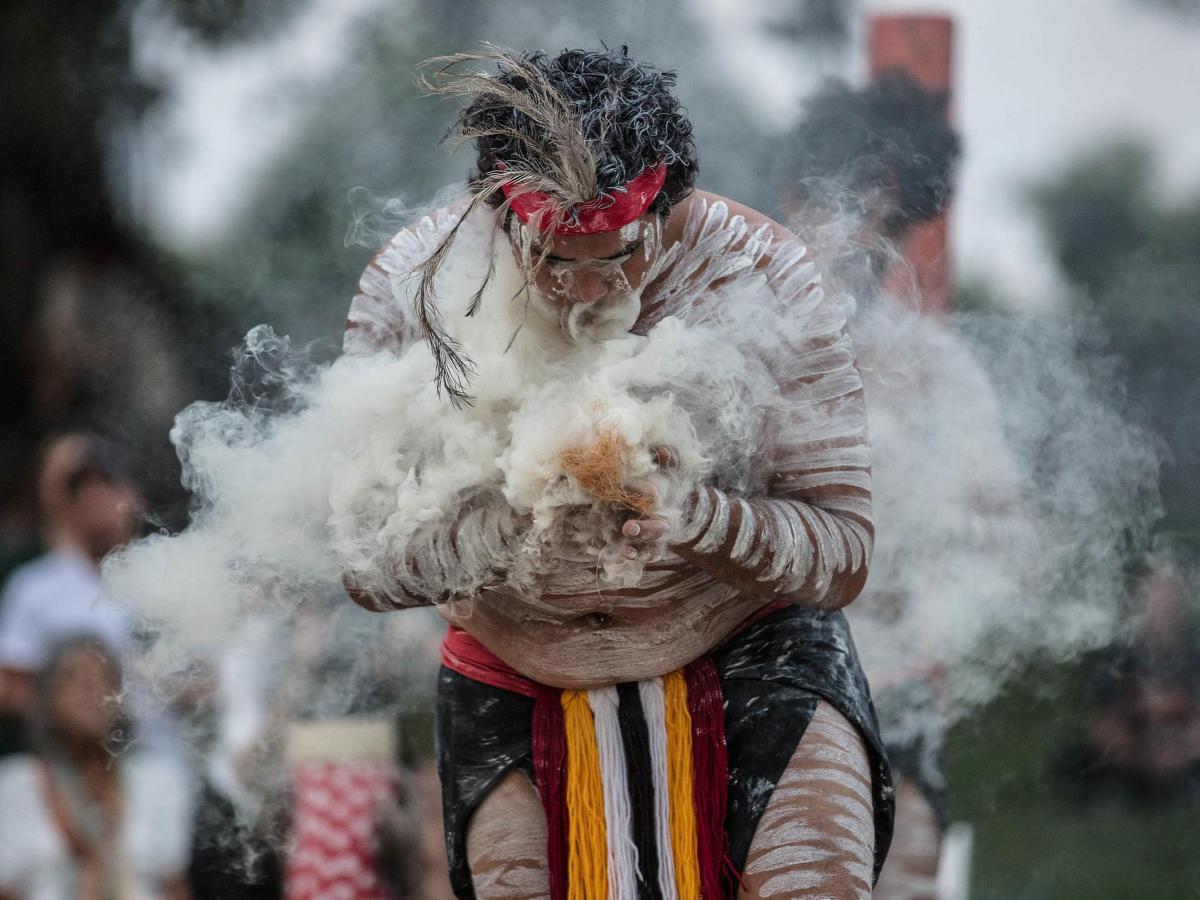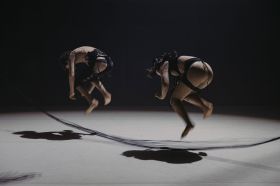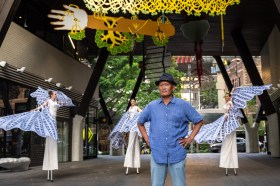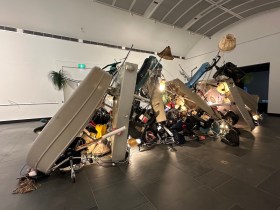Jared Coolwell, Nunukul Yuggera Aboriginal Dance Company, at Australian Performing Arts Market 2018.
For more than a decade, there has been a call for a national body to promote and protect Aboriginal and Torres Strait Islander arts and culture.
That call has now been heeded, with steps underway to establish a National Indigenous Arts and Cultural Authority (NIACA).
The model of a NIACA’s organisational structure, its funding and goals are being discussed, and consultation with the Indigenous arts community is vital in determining its development, said Wesley Enoch, Director of Sydney Festival and Chair of the Australia Council’s Aboriginal and Torres Strait Islander Arts Strategy Panel.
‘For artists in particular there are a lot of conversations around employment development through art, international and national markets of art, but not much conversation around the cultural worth and storytelling of that art and how we can have more of a conversation around these things,’ he said.
‘We can talk forever about the lack of policy and areas around that that could really benefit from NIACA but it has to be membership-led, and so what we are very much encouraging people to do is give us some guidance so we can have a sense of what’s important.’
Enoch said the process has taken some time to come to fruition, but insists it must be done in a ‘cultural way’. He has spent considerable time canvassing artists, cultural workers and others to see if there is still a hunger for a body such as NIACA, and says there is an overwhelming excitement for it.
‘We have been looking at a consultation process of 2.5 years of just talking to people and making sure that the idea is still relevant and still exciting, and that is absolutely overwhelmingly true – people say it is absolutely needed,’ he says.
Feedback is sought via three different ways: via an online survey, by making a formal submission and by attending any one of a number of First Nations consultation forums. A landmark national gathering on First Nations arts and culture will then be organised for the second half of 2019.
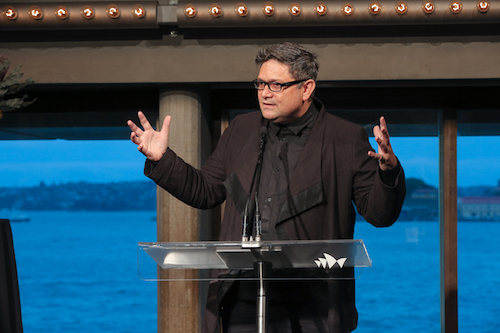
Wesley Enoch, Chair of the Aboriginal and Torres Strait Islander Strategy Panel of the Australia Council of the Arts. Image: Maja Baska
Enoch said many people within the Indigenous arts community had been frustrated by the ongoing focus on negative outcomes for First Nations Australians. Enoch said while issues such as education and health are vital, so too is protecting Aboriginal and Torres Strait Islander culture and providing a framework for real change.
The goal is for NIACA to be a completely independent and non-partisan body, with the Australia Council for the Arts acting as an interim secretariat to support the consultation process. Enoch said NIACA will become a high-profile, fully independent body to avoid partisan politics, to be able to advocate for changes and to try to avoid being a ‘political football’.
‘[The focus must be on] the long-term, intergenerational policies that we need to create systemic change,’ he said.
‘Indigenous cultures work on multi-generations, not three-year cycles.’
Whatever the structure, NIACA’s aims will be laser focused on Indigenous arts and culture, particularly with respect to some of the pressing issues facing artists.
‘That’s why I think NIACA as a body could be quite vital, especially with some of the key issues coming up like intellectual property, moral rights, artistic rights in a digital age, and how technology engages with and enhances a cultural experience rather than replacing it,’ Enoch said.
‘All of these issues have come to the fore in the last decade and we as Indigenous Australians need to ensure we are keeping up to date with the change.’
The goals of NIACA and its measures of success are to be defined throughout the consultation process, but Enoch said the important outcome for him is to have a body that provides a sense of unity, but also a clear path forward.
‘We want to have a sense of the vision of the future … Having the confidence to create the future is really where we are up to generationally. There is great trauma in the past, there is great reclamation to be done from the past, but how that fits into a future view is what we are up to now.’
To fill in a questionnaire, make a submission or find out more detail about the First Nations consultation forums, visit the NIACA website.

